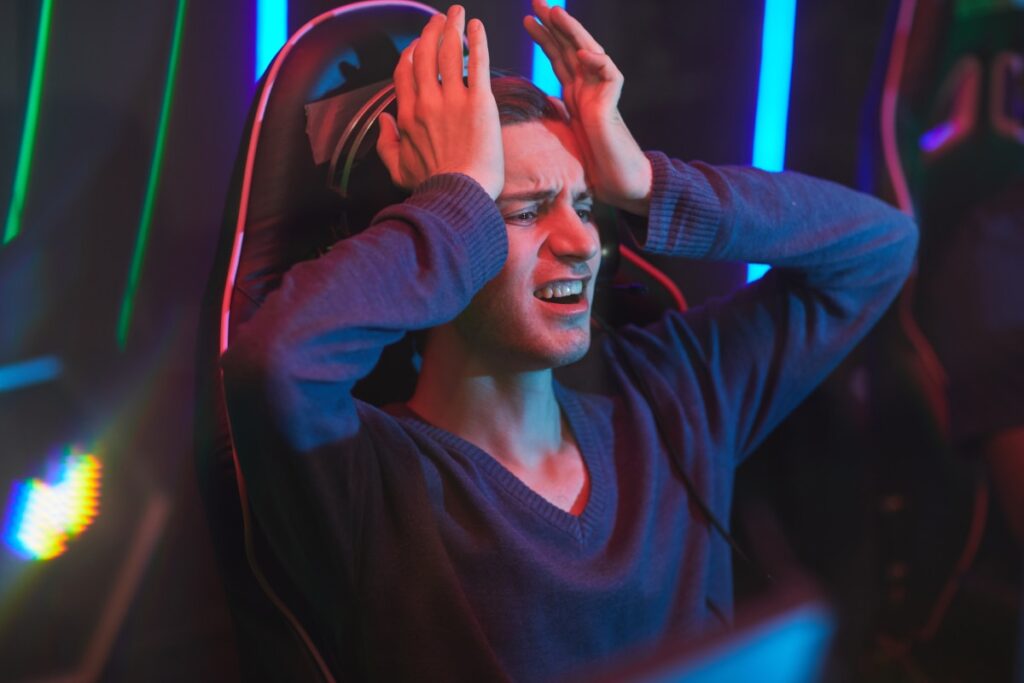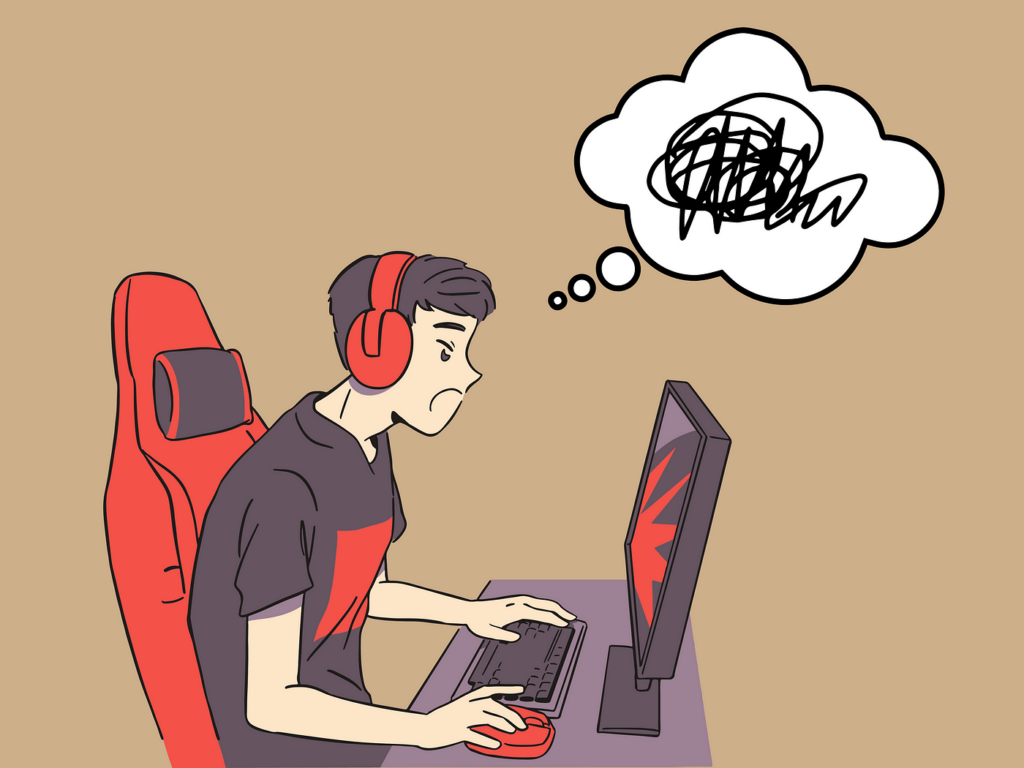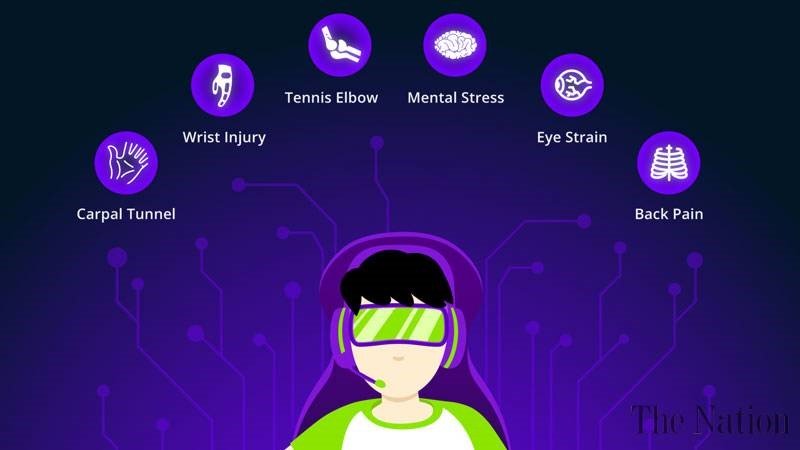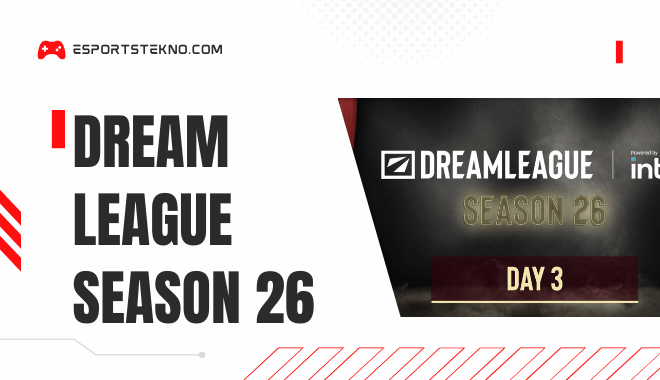In the dazzling arenas where digital gladiators battle for glory and prize pools worth millions, a silent struggle often unfolds behind the scenes. Away from the roaring crowds and streaming spotlights, professional gamers face psychological challenges that remain largely invisible to their adoring fans. As esports has exploded from niche hobby to global phenomenon, the conversation around mental health has struggled to keep pace with the industry’s meteoric rise.
As someone who’s spent years analyzing the esports ecosystem and speaking with players across different competitive titles, I’ve witnessed firsthand how mental health issues have become the industry’s most pressing yet under-addressed challenge. While organizations rush to optimize performance through cutting-edge esports hardware recommendations and training facilities, the psychological well-being of the players themselves often remains an afterthought.
This comprehensive exploration delves into the unique mental health challenges faced by professional gamers, from performance anxiety and burnout to identity issues and post-career transitions. We’ll examine the current state of psychological support in the industry, highlight pioneering approaches from leading organizations, and offer practical insights for players, teams, and industry stakeholders looking to build a more sustainable competitive environment.
Whether you’re a competitive player facing these challenges personally, a team manager responsible for player welfare, or simply a fan concerned about the well-being of your favorite pros, this deep dive into esports mental health aims to illuminate one of the most critical yet overlooked aspects of competitive gaming.
Understanding the Esports Mental Health Landscape

To appreciate the unique psychological challenges faced by professional gamers, we must first understand the distinctive pressures of the esports environment. Unlike traditional sports with centuries of established infrastructure and support systems, esports has compressed decades of professionalization into just a few years, often leaving human elements like mental health support playing catch-up.
The Perfect Storm: Why Esports Creates Unique Mental Health Challenges
Professional gaming combines several factors that create distinctive psychological pressures:
Intense public scrutiny at a young age: Many esports professionals achieve fame while still in their teenage years, a developmentally vulnerable period. Players in titles like Fortnite or League of Legends often become public figures before they’ve fully developed their personal identities or coping mechanisms.
“The psychological impact of sudden fame cannot be overstated,” explains Dr. Alicia Fortinberry, a psychologist who works with several esports organizations. “These young players face public criticism, expectations, and scrutiny during formative years when their sense of self is still developing. It’s a perfect storm for anxiety and identity issues.”
Digital native vulnerability: The constant connection to social media and streaming platforms means esports athletes face unrelenting feedback, criticism, and often harassment. Unlike traditional sports where athletes can disconnect from public opinion, esports professionals exist in the same digital spaces where commentary about their performance proliferates.
Compressed career timelines: With most professional careers lasting only a few years (as explored in our article on esports retirement age), players face immense pressure to succeed quickly, creating anxiety about both performance and future prospects.
Global competition and relocation stressors: Many players relocate internationally to join top esports teams, separating them from existing support networks precisely when they need them most. Cultural and language barriers can exacerbate feelings of isolation.
Blurred work-life boundaries: When your passion becomes your profession and your gaming house is both workplace and home, the inability to disconnect from competitive pressures creates unique psychological strain.
The Most Common Mental Health Challenges in Competitive Gaming
Research and player testimonials highlight several prevalent mental health issues in professional gaming:
Performance anxiety and competitive stress: The pressure to perform consistently at the highest level creates significant anxiety, particularly in games like Call of Duty where split-second decisions determine outcomes. This anxiety can manifest physically as “tournament nerves” – shaking hands, increased heart rate, and disrupted focus.
Burnout and exhaustion: The grueling training schedules – often 10-14 hours daily, six or seven days a week – lead to physical and mental exhaustion. This is particularly prevalent in regions like South Korea and China, where training intensity reaches extreme levels.
Former League of Legends world champion Jian “Uzi” Zi-Hao retired at just 23, citing burnout and health concerns after years of intensive training. “I was diagnosed with type 2 diabetes last year,” he revealed in his retirement announcement. “The doctor told me if I continue with this work intensity, my condition will get worse.”
Depression and isolation: The isolated nature of training, often conducted indoors for extended periods with limited physical activity or social interaction, creates conditions conducive to depression. This is exacerbated for international players far from home and family.
Identity fusion and self-worth issues: When players’ identities become completely intertwined with their competitive personas and success, losses can feel like personal failures rather than just professional setbacks. This identity fusion makes criticism particularly devastating and retirement especially challenging.
Sleep disruption: Irregular competition schedules, international travel, and the stimulating nature of competitive gaming all contribute to poor sleep quality, which further impacts mental health and cognitive performance.
Post-career transition anxiety: With most careers ending by the mid-20s, many players face existential questions about their future when they’ve invested their formative years almost exclusively in gaming.
The Current State of Mental Health Support in Esports

The industry’s approach to mental health support varies dramatically across organizations, regions, and competitive titles. While some pioneering teams have implemented comprehensive psychological support systems, many players still navigate these challenges with minimal professional assistance.
The Regional Disparity in Mental Health Approaches
Mental health support in esports shows significant regional variation, reflecting broader cultural attitudes toward psychological wellbeing:
North America and Western Europe have generally led the way in formalizing mental health support, with organizations like Team Liquid, Cloud9, and G2 Esports implementing dedicated sport psychologists and wellness programs. The openness about mental health struggles is also greater, with players like Heo “PawN” Won-seok and Oleksandr “s1mple” Kostyliev publicly discussing their psychological challenges.
East Asia, despite being home to some of the most developed esports infrastructures, often lags in mental health support due to cultural stigma around psychological issues. However, this is gradually changing, with organizations like T1 and Gen.G beginning to incorporate mental wellness into their training programs.
Emerging esports regions like Southeast Asia, Brazil, and Eastern Europe typically have the least developed mental health infrastructure, despite the growing popularity of titles like Mobile Legends Bang Bang in these areas. The growth of mobile gaming in regions with limited mental health resources presents particular challenges.
“The regional disparity in mental health support creates an uneven competitive landscape,” notes Dr. Mia Stellberg, a psychologist who has worked with Astralis and other top teams. “Organizations that properly support their players’ psychological wellbeing gain a significant competitive advantage through improved performance stability and career longevity.”
Pioneering Organizations and Their Approaches
Several forward-thinking organizations have established comprehensive mental health programs that offer models for the broader industry:
Astralis’ Performance Model: The Danish Counter-Strike team revolutionized esports mental health approaches with their “performance model,” which includes:
- A dedicated sports psychologist as a core team member
- Mandatory physical exercise programs
- Structured breaks and vacation time
- Sleep optimization protocols
- Meditation and mindfulness training
This holistic approach contributed to Astralis becoming one of the most dominant teams in esports history, demonstrating that psychological support directly enhances competitive performance.
Team Liquid’s Athlete Services Platform: This comprehensive program provides players with:
- Individual therapy sessions
- Performance psychology coaching
- Meditation and stress management training
- Nutritional guidance to support mental health
- Sleep coaching and monitoring
The Healthy Gamer Approach: Dr. Alok Kanojia’s Healthy Gamer organization offers specialized mental health resources for gamers, including group coaching specifically designed for competitive players. His background as both a psychiatrist and former gaming addict provides unique insight into the challenges faced by esports professionals.
The Evolving Role of Esports Psychologists
The role of psychological professionals in esports has evolved significantly over the past five years:
From crisis intervention to performance optimization: Early psychological support often focused on addressing existing problems. Today’s approach increasingly emphasizes preventative measures and performance enhancement.
Integration into daily operations: Rather than occasional consultations, leading teams now fully integrate psychological professionals into regular training schedules and team operations.
Specialized expertise development: A new generation of sports psychologists is developing expertise specifically tailored to esports, understanding the unique pressures of different games and competitive environments.
“Working with esports athletes requires specialized knowledge that bridges traditional sports psychology and digital-native understanding,” explains Dr. Issa Aviles, who works with several professional teams. “The psychological demands of a MOBA player differ significantly from those of an FPS competitor, requiring tailored approaches to mental training and support.”
The Business Case for Mental Health Investment

Beyond ethical considerations, mounting evidence suggests that investing in player mental health creates tangible competitive and business advantages. Organizations are increasingly recognizing that psychological support represents a high-return investment rather than a peripheral expense.
Performance Stability and Consistency
Teams with robust mental health support systems typically demonstrate greater performance consistency, particularly under high-pressure situations. The classic example remains Astralis’ dominance in Counter-Strike, where their pioneering psychological approach contributed to unprecedented consistency in major tournaments.
“The data clearly shows that teams with formalized mental health support experience fewer performance collapses during high-pressure situations,” explains data analyst Marcus Chen, who has studied performance patterns across major esports. “The ROI on psychological support becomes evident when examining performance stability over time.”
Extended Career Longevity
Organizations investing in player wellbeing typically benefit from extended player careers, amortizing their investment in talent development over longer periods. This is particularly valuable as player acquisition costs rise with increasing esports player salaries.
By addressing burnout proactively and creating sustainable training environments, teams can extend the competitive window of their star players – a significant advantage when building team chemistry and fan connections.
Brand Value and Sponsor Attraction
As mainstream sponsors become increasingly conscious of ethical considerations, organizations demonstrating commitment to player welfare gain advantages in partnership opportunities. Companies like BMW, Mastercard, and Red Bull have shown preference for partnering with organizations that maintain positive public images through player care.
“Sponsors are increasingly performing due diligence on team culture and player support before committing to partnerships,” notes esports marketing executive Sarah Johnson. “Mental health support has become a significant factor in sponsorship decisions as brands seek to mitigate potential PR risks.”
Talent Recruitment Advantage
In the competitive landscape of player recruitment, teams with reputations for supporting athlete wellbeing gain advantages in signing and retaining top talent. As players become more aware of the importance of psychological support, many now consider mental health resources when evaluating team offers.
“Five years ago, players only asked about salary and facilities,” explains player agent Ryan Morrison. “Today, many of my clients specifically inquire about mental health resources during contract negotiations. It’s become a significant factor in career decisions.”
The Dark Side: When Mental Health Issues Go Unaddressed
The consequences of neglecting mental health in esports can be severe, affecting both individual wellbeing and competitive outcomes. Several high-profile cases illustrate the potential costs of inadequate psychological support.
Career-Ending Burnout
Numerous promising careers have ended prematurely due to severe burnout. Beyond the previously mentioned case of Uzi, other notable examples include:
Chae “Piglet” Gwang-jin: The former League of Legends world champion struggled with burnout and motivation issues after relocating to North America, eventually leaving the competitive scene despite his mechanical talent remaining intact.
Kuro “KuroKy” Salehi Takhasomi: Though still competing, the Dota 2 veteran has openly discussed periods of severe burnout that nearly ended his career before he implemented better balance and mental health practices.
“Burnout in esports isn’t just feeling tired – it’s a complete psychological and physical collapse after sustained overtraining,” explains sports medicine specialist Dr. Lindsey Migliore. “Without intervention, it can lead to depression, anxiety disorders, and career-ending motivation loss.”
Performance Collapse Under Pressure
Teams without proper psychological preparation often experience catastrophic performance collapses during high-pressure situations:
The infamous “9-3 curse” in Valorant: Teams leading 9-3 at halftime frequently collapse under the pressure of maintaining their advantage, a phenomenon directly linked to psychological factors rather than skill.
Team Liquid’s 2019 Major failures: Despite being ranked #1 globally, the team repeatedly faltered in crucial tournament moments, later attributed to psychological pressure and inadequate mental preparation.
Post-Career Struggles
Without proper identity development and transition planning, many former pros struggle significantly after retirement:
Depression and purpose loss: Many players report profound depression after retirement, having built their entire identity around competitive success.
Financial mismanagement: Without proper guidance, many players struggle to manage the financial aspects of their post-playing lives, despite having earned substantial esports player salaries during their careers.
Skill transferability challenges: Players who’ve focused exclusively on gaming often struggle to identify transferable skills for conventional careers.
“The post-career transition represents perhaps the most neglected aspect of esports mental health,” notes career counselor Miguel Fernandez, who specializes in working with former professionals. “Players go from being celebrated champions to feeling completely irrelevant almost overnight, creating profound identity crises.”
Practical Approaches to Improving Mental Health in Esports
Having examined the challenges and current landscape, let’s explore practical approaches for different stakeholders to improve mental wellbeing in competitive gaming.
For Organizations and Team Managers
Implement structured work-life boundaries: Establish clear distinctions between training time and personal time, including mandatory breaks and days off. Even in team houses, create private spaces where players can fully disconnect.
Incorporate physical wellness: Regular exercise, proper nutrition, and sleep hygiene directly impact mental health. Teams should implement mandatory physical activity programs as standard practice.
Build comprehensive support teams: Beyond just coaches, teams should employ:
- Sports psychologists with esports-specific knowledge
- Physical therapists to address the physical components of mental wellbeing
- Nutritionists to optimize brain function through diet
- Career counselors to reduce anxiety about the future
Create positive team culture: Actively work to create environments where discussing mental health challenges is normalized rather than stigmatized.
Develop post-career pathways: Implement programs that help players develop skills and explore opportunities beyond competing, reducing transition anxiety.
For Players and Competitors
Develop identity beyond gaming: Actively cultivate interests, relationships, and skills outside of competitive play to maintain perspective and reduce identity fusion.
Implement personal mental hygiene practices: Incorporate evidence-based practices like:
- Mindfulness meditation (even 10 minutes daily shows benefits)
- Journaling to process emotions and track patterns
- Deliberate disconnection from social media, particularly after competitions
- Regular nature exposure and physical movement
Build peer support networks: Connect with other players who understand the unique pressures of competitive gaming, creating safe spaces to discuss challenges.
Seek professional help proactively: Don’t wait for crisis points to engage with mental health professionals. Regular psychological maintenance should be as normal as physical training.
Practice deliberate recovery: Implement structured recovery periods with complete disconnection from gaming and competitive pressures.
For Game Developers and Tournament Organizers
Design healthier competitive structures: Create tournament formats and scheduling that allow for adequate rest and recovery between high-pressure performances.
Implement anti-harassment policies: Develop robust systems to address toxic behavior that impacts player mental health, particularly targeted harassment.
Provide mental health resources: Offer access to psychological support as part of tournament participation, particularly for independent players without organizational backing.
Create educational content: Develop resources that normalize mental health discussions within game communities.
Case Studies: Success Stories in Esports Mental Health
Several notable examples demonstrate how proper mental health approaches can transform outcomes for both individuals and organizations:
Astralis: The Mental Game Revolution
The Danish Counter-Strike team Astralis transformed from talented underachievers to the most dominant team in CS:GO history after implementing their comprehensive performance model under the guidance of sports psychologist Mia Stellberg.
Key elements of their approach included:
- Addressing performance anxiety through systematic desensitization
- Implementing team communication protocols for high-pressure situations
- Establishing clear work-life boundaries with mandatory breaks
- Incorporating physical fitness as a non-negotiable aspect of training
The results were unprecedented: four Major championships (including a record three consecutively) and the longest reign as world #1 in Counter-Strike history. Their approach has since become a blueprint for organizations across different competitive titles.
Faker: Longevity Through Psychological Resilience
Lee “Faker” Sang-hyeok, widely considered the biggest esport star in history, has maintained competitive excellence in League of Legends for a decade – an eternity in esports terms. His longevity stems partly from exceptional psychological approaches:
- Maintaining perspective through family connections
- Implementing structured media engagement to manage public pressure
- Developing leadership skills that create purpose beyond individual performance
- Working with T1’s psychological staff to process both victories and defeats healthily
“Faker’s mental approach separates him from equally skilled players,” notes League of Legends analyst Emily Rand. “His ability to reset after losses, maintain focus despite enormous pressure, and find continued motivation sets the standard for psychological resilience in esports.”
Team Liquid: Organizational Transformation
After several disappointing tournament performances despite having talented rosters, Team Liquid implemented one of the most comprehensive mental health programs in esports. Their approach includes:
- Individual therapy sessions for all players
- Team dynamics workshops to improve communication
- Sleep and recovery optimization programs
- Mindfulness training integrated into daily schedules
- Career development planning for post-competition transitions
This investment has paid dividends across multiple games, with Liquid consistently fielding competitive teams with lower burnout rates and longer player careers than industry averages.
The Future of Mental Health in Esports
As the industry continues to mature, several emerging trends point to how mental health approaches in esports will likely evolve:
Integration of Biometric Monitoring
Advanced wearable technology is beginning to provide objective data on stress levels, sleep quality, and recovery status. Teams are increasingly incorporating these tools to:
- Identify early warning signs of burnout before subjective symptoms appear
- Optimize training schedules based on individual recovery patterns
- Quantify the impact of mental training interventions
“The future of esports mental health will be increasingly data-driven,” predicts sports technology researcher Dr. James Carter. “Teams are beginning to quantify previously subjective aspects of psychological state, allowing for more personalized and preventative approaches.”
Specialized Academic Programs
Universities offering esports scholarships are beginning to develop specialized academic programs focused on gaming psychology and mental performance. These programs will create a new generation of professionals specifically trained in esports mental health rather than adapting from traditional sports backgrounds.
Institutions like the University of California, Irvine and Boise State University are pioneering research specifically examining the psychological demands of competitive gaming, creating evidence-based protocols for mental performance.
Mental Health as Competitive Differentiator
As basic physical training becomes standardized across organizations, psychological preparation increasingly represents the frontier where competitive advantages are gained. Teams investing in cutting-edge mental health approaches will likely demonstrate more consistent performance, particularly in high-pressure situations.
“The next major breakthrough in esports performance will come from the mental rather than the physical domain,” argues performance coach Weldon Green. “Teams that solve the psychological puzzle will gain the same advantage that early adopters of systematic physical training once enjoyed.”
Holistic Player Development
The most forward-thinking organizations are moving toward models that develop players as complete individuals rather than just in-game talents. This approach includes:
- Educational opportunities alongside competitive training
- Financial literacy and investment guidance
- Personal brand development
- Transferable skill identification and development
- Leadership and communication training
This holistic development not only improves mental health but creates more sustainable career paths both within and beyond competitive play.
Conclusion: The Imperative for a New Approach
As esports continues its remarkable growth trajectory, the industry stands at a crucial inflection point regarding mental health. The unsustainable practices that characterized early competitive gaming – endless practice hours, complete identity fusion with competition, and neglect of psychological wellbeing – are gradually giving way to more sophisticated approaches that recognize the human beings behind the digital avatars.
This evolution isn’t just ethically necessary – it’s competitively advantageous. The organizations pioneering comprehensive mental health approaches aren’t just creating healthier environments; they’re winning more consistently and building more sustainable business models.
For players navigating the intense pressures of professional gaming, implementing personal mental health practices isn’t an optional supplement to mechanical training but an essential component of competitive excellence. The most successful competitors increasingly recognize that psychological resilience represents as crucial a skill as perfect aim or lightning-fast reflexes.
For parents and aspiring professionals considering the esports path, the industry’s growing focus on mental wellbeing offers reassurance that competitive gaming can provide not just financial opportunities but genuine pathways for positive personal development – particularly when aligned with organizations that prioritize player welfare.
The future of esports lies not just in faster reflexes, better strategy, or more sophisticated technology, but in creating sustainable competitive environments where players can perform at their peak while maintaining their psychological wellbeing. As the industry continues to mature, the organizations and players who recognize this fundamental truth will be the ones who thrive in the long term – both competitively and personally.
The conversation around mental health in esports isn’t just about addressing problems; it’s about unlocking human potential and creating a competitive environment where excellence and wellbeing aren’t competing priorities but complementary goals. That’s a future worth championing – for the players, the organizations, and the millions of fans who find inspiration in competitive gaming’s digital arenas.
Daffa Nur Rafie Alam is a passionate gaming enthusiast and technology aficionado dedicated to exploring the dynamic intersection of esports, gaming, and innovation. With a keen eye for emerging trends and a deep understanding of the gaming landscape, he provides insightful analysis and engaging content for both casual gamers and industry professionals. As a contributor to Esportstekno.com, Daffa ensures that readers receive reliable information that enhances their understanding of the ever-evolving world of esports.
Daffa Nur Rafie Alam is a passionate gaming enthusiast and technology aficionado dedicated to exploring the dynamic intersection of esports, gaming, and innovation. With a keen eye for emerging trends and a deep understanding of the gaming landscape, he provides insightful analysis and engaging content for both casual gamers and industry professionals. As a contributor to Esportstekno.com, Daffa ensures that readers receive reliable information that enhances their understanding of the ever-evolving world of esports. Join him on this exciting journey as he shares valuable insights and fosters a community of like-minded individuals passionate about the innovations shaping the gaming industry.
 eSportsTekno Your Gateway to the Future of Gaming and Innovation
eSportsTekno Your Gateway to the Future of Gaming and Innovation
